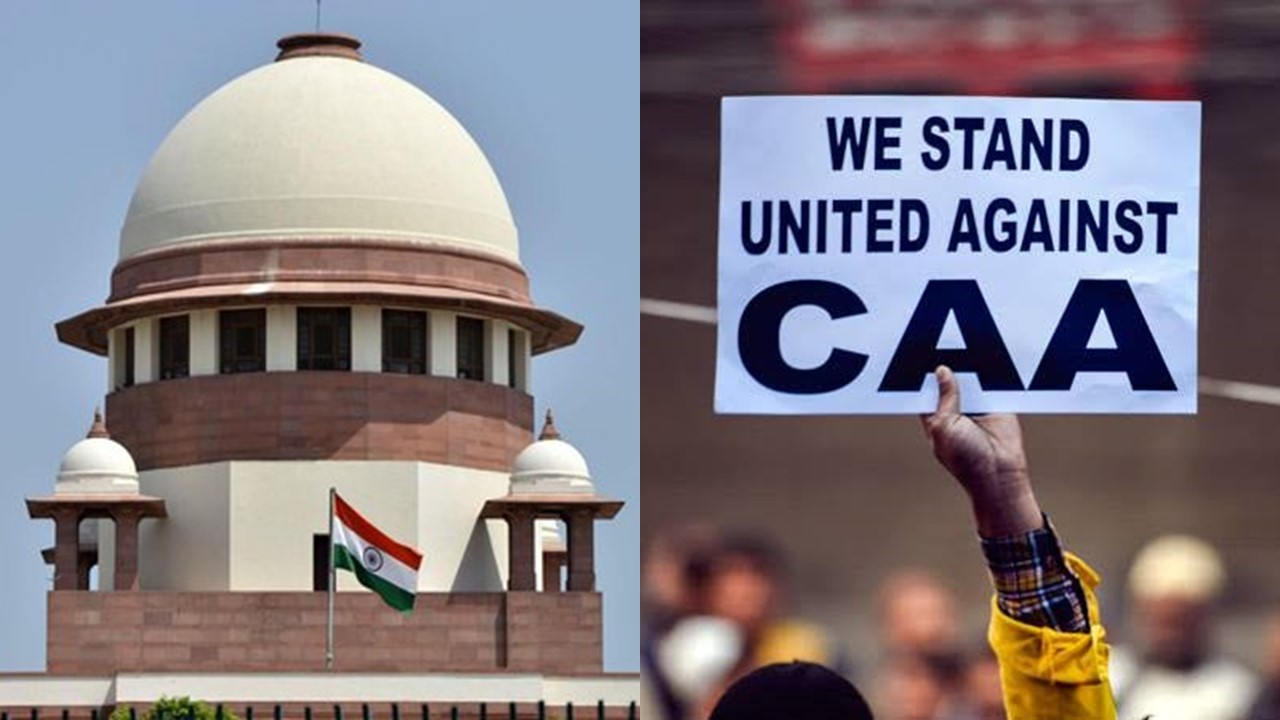
The Supreme Court is all set to hear a batch of petitions challenging the constitutional validity of the controversial Citizenship Amendment Act (CAA), 2019. A bench of the Chief Justice of India UU Lalit and Justice Ravindra S. Bhat will be considering the petitions filed challenging the amendment, which are over 200 in number.
The Citizenship Amendment Act was passed by the Parliament on December 11, 2019, after which it met with protests all across the country. The CAA came into effect on January 10, 2020. The law fast-tracks the process of granting citizenship to Hindus, Sikhs, Buddhists, Jains, Parsis and Christians who fled religious persecution in Afghanistan, Bangladesh and Pakistan and took refuge in India on or before December 31, 2014.
Petitions were then filed against the discriminatory nature of this law which leaves out the Muslim community from the process of getting citizenship and is therefore perceived to be promoting religion-based discrimination. It is only applicable to migrants who entered India on or before December 31, 2014. As per the amendment, certain areas in the Northeast are exempted from the provision.
Indian Union Muslim League, a Kerala based political party, Trinamool Congress MP Mahua Moitra, Congress leader and former Union minister Jairam Ramesh, All India Majlis-e-Ittehadul Muslimeen (AIMIM) leader Asaduddin Owaisi, Congress leader Debabrata Saikia, NGOs Rihai Manch and Citizens Against Hate, Assam Advocates Association, and law students are amongst several others who had filed the plea before the top court challenging the Act.
The amendments have also been challenged on several other grounds, including the violation of secularism, Articles 21 (right to life), 15 (prohibition of discrimination on grounds of religion, race, caste, sex or place of birth) and 19 (right to freedom), as well as the provisions on citizenship and constitutional morality.
The pleas against the CAA first came up for hearing in the Supreme Court on December 18, 2019. It was last heard on June 15, 2021. It may be noted that in December 2019, the Bench comprising CJI Bobde and Justices BR Gavai and Surya Kant had asked the Centre to file a response by the second week of January. In January 2020, a bench led by the then CJI SA Bobde issued a notice to the Central Government in the petitions while refusing to pass an interim order staying the law without hearing the Centre.
In March 2020, BC Joshi, Director in the Ministry of Home Affairs, filed a 129-page affidavit on the behalf of the central government, in response to the pleas challenging the constitutional validity of CAA, termed the legislation legal and asserted that there was no question of it violating constitutional morality.
Asserting that the citizenship law was is “perfectly legal and constitutional”, the central government said that it is matter concerning the sovereign power of parliament and “could not be questioned” before the court.
Responding to the fact that the amendment applies only to six communities in three countries when there are other minorities in these countries, the Centre put forth that the conferment of citizenship is a sovereign function. “The Indian parliament, which doubtlessly has the legislative competence, is not required to take into consideration as to which other communities are treated as minorities in the said three named countries,” reads the counter-affidavit filed by the government.
It further states, “The said classified communities are persecuted in the particular neighboring countries as has been acknowledged and recognized by Parliamentary Committees as well as other contemporaneous official record and during the debates in the Indian Parliament.” It was also argued that the CAA Act is a “benign piece of legislation”, which does not seek to affect the legal, democratic or secular rights of any of the Indian citizens.
The entire counter-affidavit may be read here:
Related:
CAA to be implemented after completion of Covid vaccination drive?